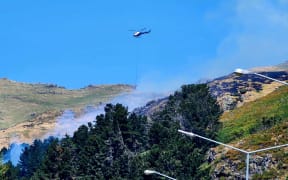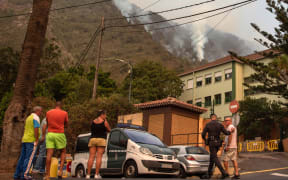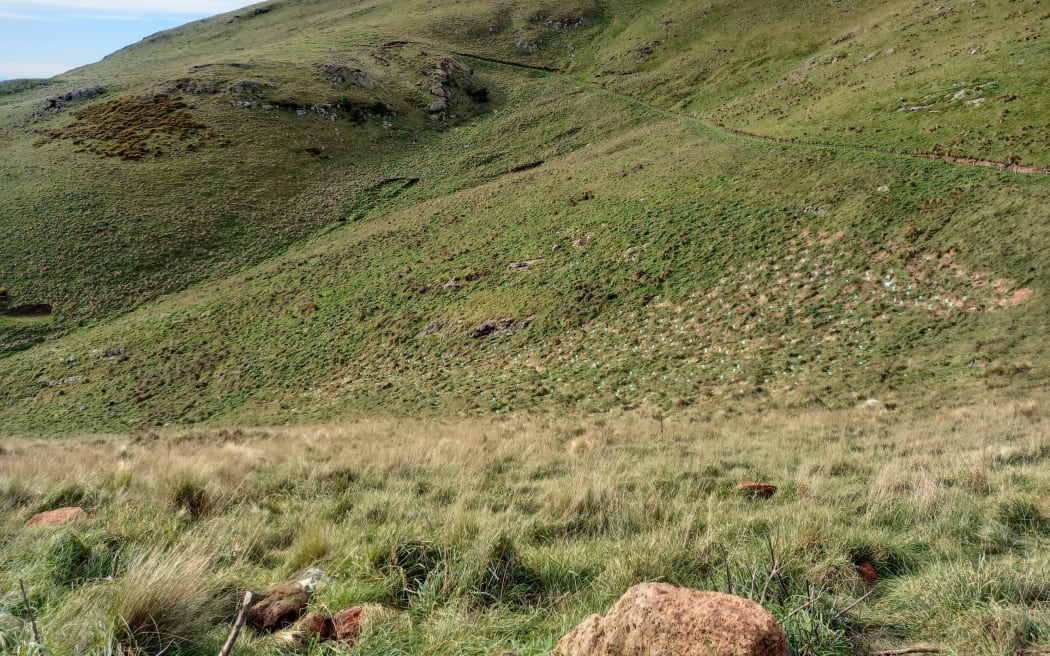
Recent plantings in the Avoca Valley, in the Port Hills above Christchurch. Photo: Supplied/ Summit Road Society
Conservationists hope the way they are tactically replanting Christchurch's Port Hills will mean fewer or less damaging fires in the future.
The ranges have been susceptible to fire in recent years, none bigger than the 2017 fires that burned through 1600 hectares of land, destroyed nine homes and forced hundreds to evacuate.
The Summit Road Society has looked after the hills for more than 70 years. Secretary Marie Gray said the society was one of many community groups committed to cloaking the hills in green and preserving wildlife.
But fires remained front of mind for planters.
"We're looking at 'green firebreaks'- planting low-flammable native species, or 'grass firebreaks', where you use short grass to basically slow a fire down," Gray said.
Low-flammable plant species natural to the hills include tree fuchsia and the New Zealand broadleaf (Griselinia littoralis).
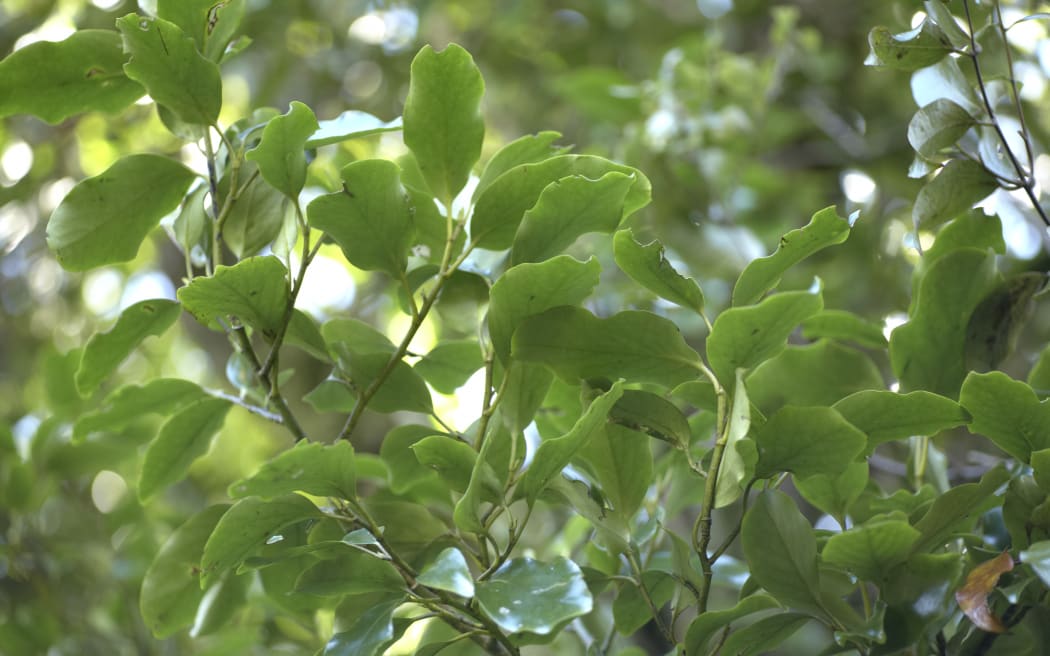
New Zealand broadleaf Photo: Te Papa / CC BY 4.0.
Gray said the biggest risk in terms of fire came from people.
"Whether that's an accidental fire, perhaps started by a burn-off gone wrong or tools hitting rocks, or whether it's a deliberate fire... You do occasionally get other types of fire like lightning, but the vast majority are associated with people.
"So you have to focus your efforts in the areas where people interact with your space."
For the Port Hills, that meant creating firebreaks at popular walking areas such as on the Summit Road.
Gray said the most recent fire, which scorched an area on the northern slopes of the hills near Hillsborough in November, was close to where the society had recently planted over 50,000 trees in Avoca Valley.
"Luckily Fire and Emergency got on top of it quickly. If they hadn't and the wind was blowing the opposite way there's a risk it could have spread to our new plantings," she said.
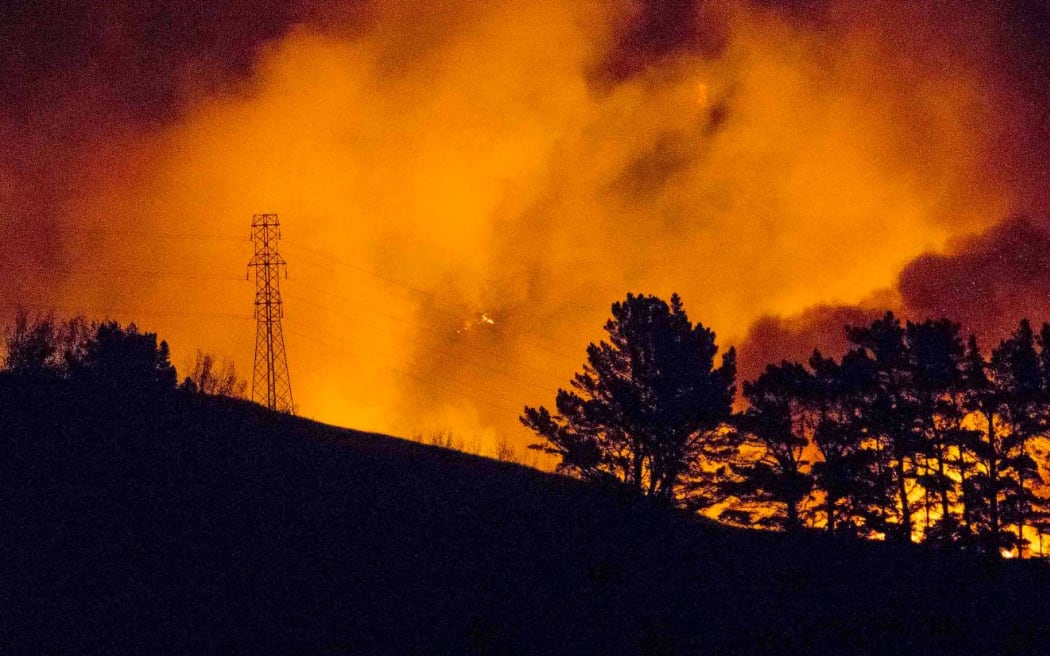
Thousands of people were forced to evacuate their homes during the Port Hills fires in 2017, which destroyed nine homes and burned 1600 hectares of land. Photo: Christchurch City Council
Fire and Emergency community risk manager Dean Harker confirmed the November fire was caused by sparks coming from the use of power tools for cutting.
"The Port Hills area is more susceptible to wildfire as the area borders onto residential areas, and we know that 98 percent of all wildfires are caused by humans," he said.
Harker warned people to take care when doing any activities that could cause a spark.
"Do these in the cooler parts of the day when its less risky. One spark is all it takes, so please be vigilant and follow our safety tips to reduce the risk of a wildfire this summer."
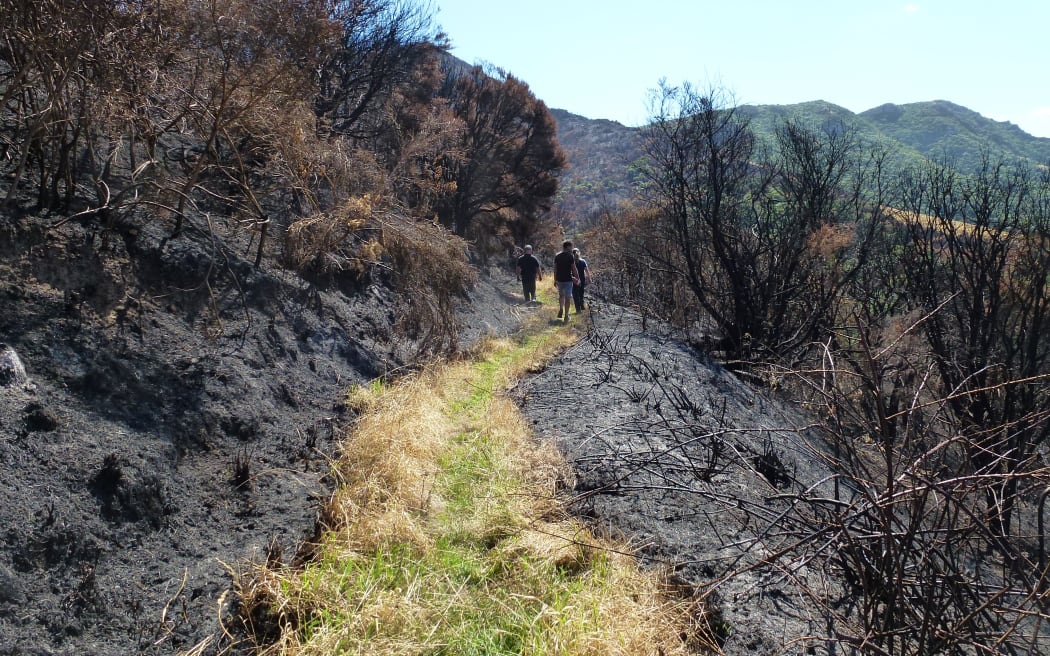
The Ohinetahi Bush Reserve after the 2017 Port Hills fires. Photo: Supplied
Gray said it would probably take 50 years to see the full benefits of the community's work on the hills.
She said it was a balance between planting and allowing natural regeneration.
"You do have an incredible seed source; you've got the forest right there, and so if you can keep on top of the weeds, actually nature will restore itself," she said.
Gray said dedicated volunteer teams were often made up of retired people.
She said a lot of parallel work was going on, including the Pest Free Banks Peninsula project.
"I feel like we're entering a really exciting opportunity in terms of the potential for the Port Hills to really be the taonga on Christchurch city's doorstep in terms of bush just there. If you go to the harbour now you can see flocks of 30 kererū. You just can't quite see them on the city side, but you will!" she said.
